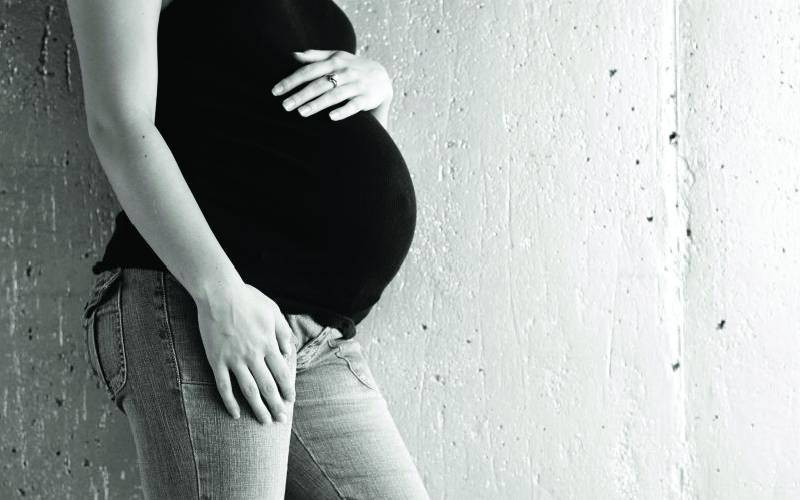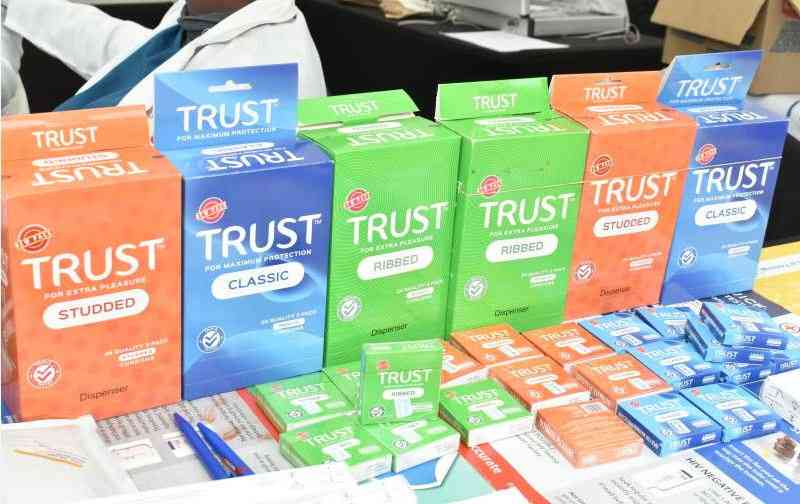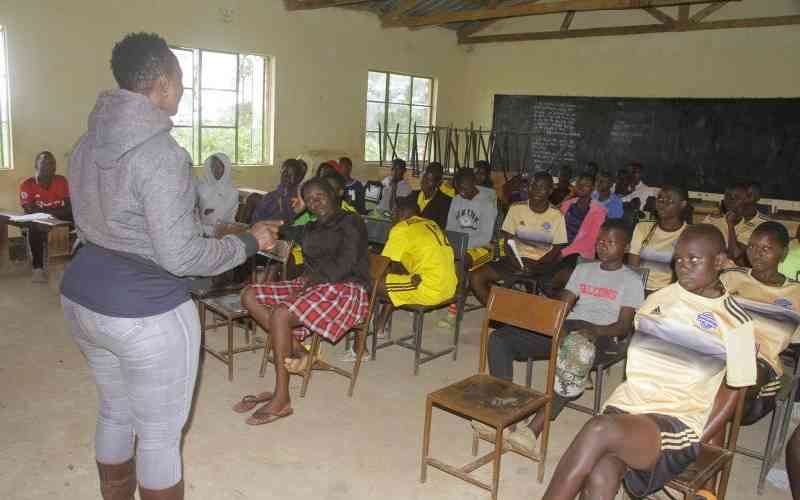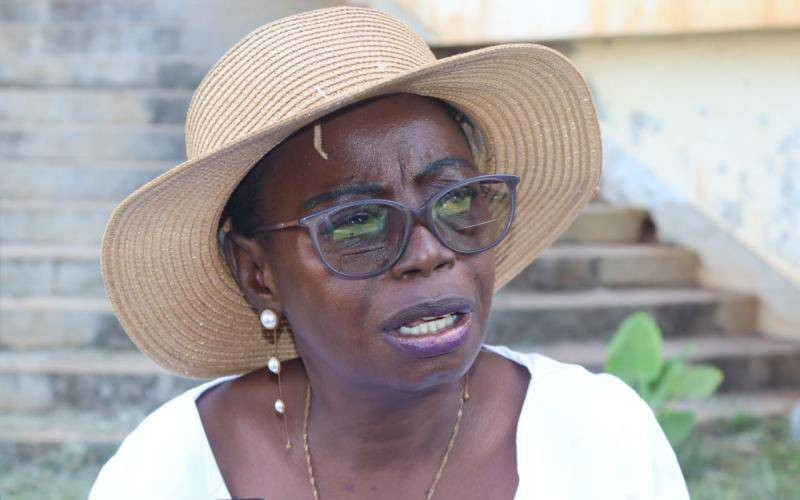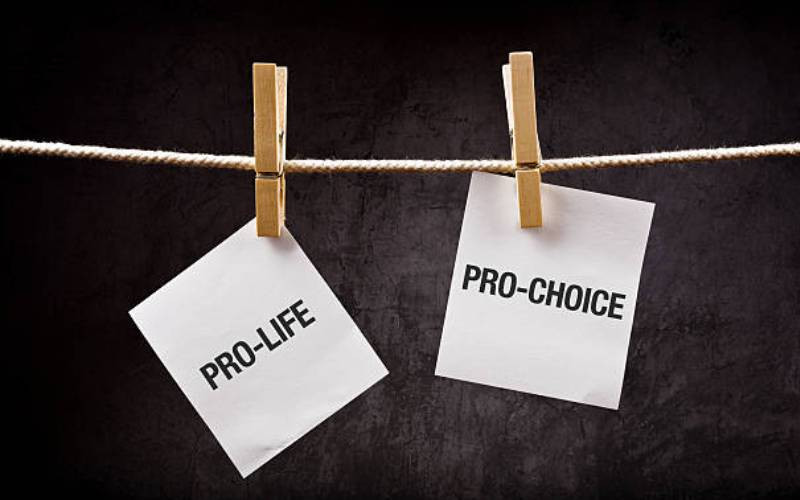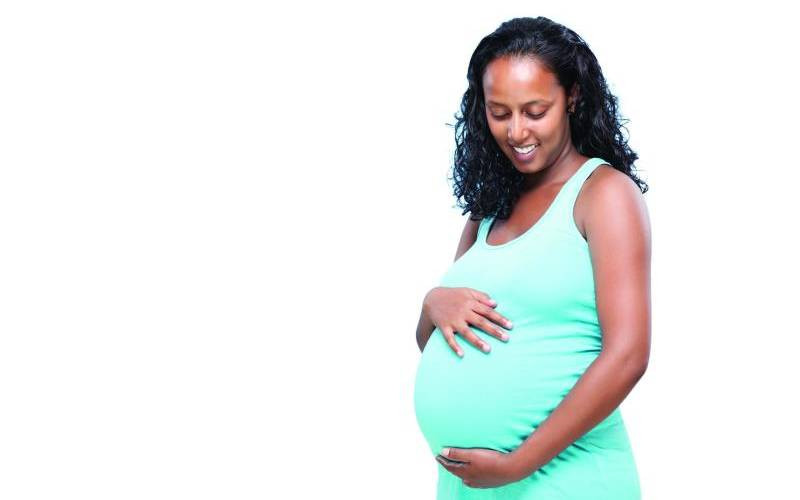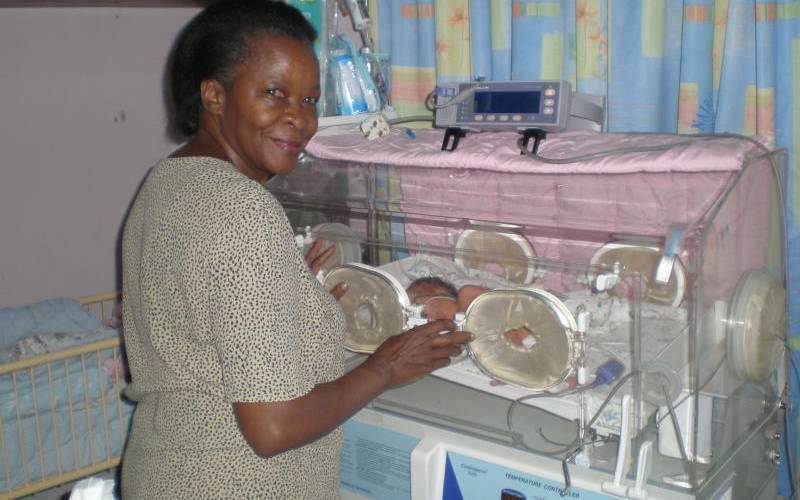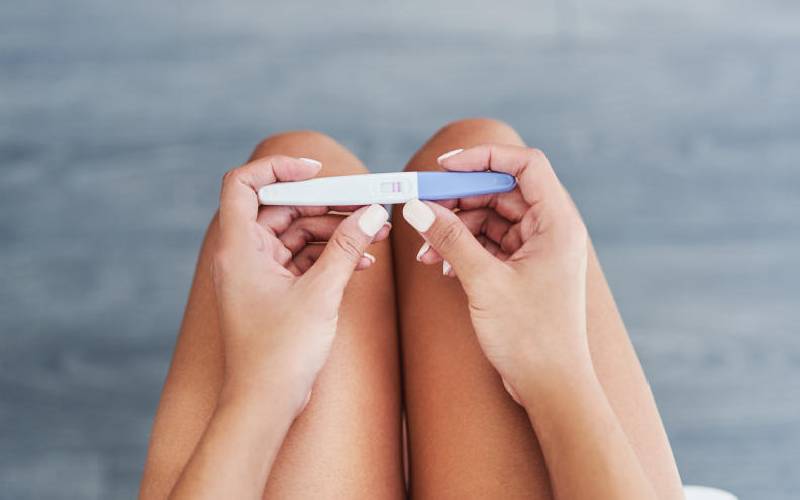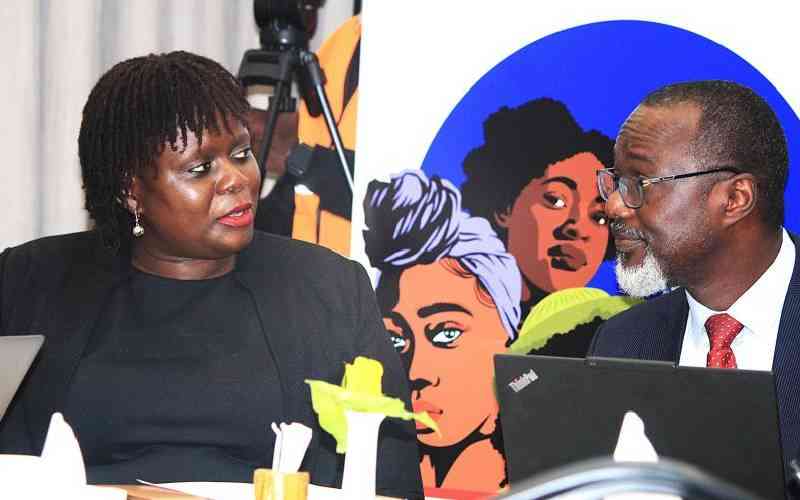
Executive Director Reproductive Health Network Kenya(RHNK)Nelly Munyasia with Amref International University Vice Chancellor Joachim Osur during a meeting with the media ahead of 8th RHNK Pan-African adolescent and youth scientific conference that will discuss adolescent and youth sexual and reproductive health and rights amid threats and opportunities. [Benard Orwongo, Standard]
Experts have urged the government and policymakers to involve the youth and adolescents in decision-making processes about sexual and reproductive health.
Public health and reproductive health specialist Prof Joachim Osur on Thursday said the government should also implement sexual education to prevent teenage pregnancies and sexually transmitted diseases among the youth and adolescents.
He spoke as the latest Kenya Demographic and Health Survey revealed that one in five women between the ages of 15 and 49 has an unmet need for family planning.
Teenage pregnancy remains a major issue, affecting one in six girls between 15 and 19.
And too many young people still don’t have access to the kind of comprehensive sexuality education or youth-friendly health services that could make a meaningful and impactful difference in their lives.
“Sexuality education is very important, but young people are not well-equipped because we have not embraced it in many African countries. These young people will still get information from the internet, and they may not get it the right way,” said Prof Joachim, a sexual and reproductive health expert.
- KMA faults health leadership shakeup, urges stability in ministry
- Duale pleads for 3 weeks to address staff demands
- Can CS Duale alias the bulldozer fix a health sector on the sickbed?
- Six dead as cholera outbreak spreads
Keep Reading
Prof. Osur added: “There is therefore an urgent need for governments, churches, and schools to embrace sexuality education and implement it if we are to prevent teenage pregnancies and Sexually Transmitted Diseases.”
Data from the Kenya National Bureau of Statistics (KNBS) shows that low levels of education, limited access to comprehensive sexual and reproductive health services, poverty and gender-based violence are some of the major contributing factors to teenage pregnancies and sexually transmitted diseases.
While much progress has been made in implementing sexual health education for young people in Kenya, full integration of Comprehensive Sexuality Education (CSE) into the school system and programs for young people in and out of school has not been actualized to date.
Research also shows that sexual health and sexuality messages conveyed in classroom teaching are often conservative and focused on abstinence and that teachers most strongly emphasize that sex is dangerous and immoral.
Director General for the National Council for Population and Development (NCPD), Dr. Mohamed Sheikh said that Africa is under pressure from several interlinked forces.
He mentioned rapid population growth, climate change, environmental degradation, and continuing gaps in access to sexual and reproductive health services.
These pressures, he said, are particularly acute for adolescents and young people, who often find themselves without the resources or support they need to thrive.
“We need to place adolescent and youth reproductive health and rights where they belong: at the heart of our national priorities. Right now, our youth—those between the ages of 10 and 24—make up 35 per cent of Kenya’s population. That’s more than a third of our people. They are energetic. They are ambitious. They are full of ideas. But they are also vulnerable,” he added.
Dr. Edward Serem, Head of the Division of Reproductive and Maternal Health at the Ministry of Health, said enhancing community-level awareness about Adolescent and Youth Sexual and Reproductive Health Rights and their prevention is imperative.
“Now is the time to confront the new wave of HIV/AIDS, unintended pregnancies, early marriages, gender-based violence, and female genital mutilation, and we are building a united front to ensure every young person has access to the health services, education, and support they need to thrive in an increasingly complex world.”
In a bid to address the sexual and reproductive health challenges facing adolescents and youth, the Reproductive Health Network Kenya (RHNK), in collaboration with the Ministry of Health, will host its 8th Pan-African Adolescent and Youth Sexual and Reproductive Health and Rights (AYSRHR) Scientific Conference in June, in Mombasa.
This conference is not just another quintessential summit, but a platform for action.
It will be held under the, “Adolescent and Youth Sexual and Reproductive Health and Rights in a World of Emerging Threats and Opportunities.'
Cabinet Secretary for Health, Aden Duale will open the meeting which will be a place where voices from across Africa will come together to share what’s working and what’s not and explore innovations.
It will also strengthen coalitions across sectors and regions. It will help normalize discussions around reproductive health and challenge the harmful myths and taboos that still hold so many people back.
More than 1,000 delegates from over 30 countries are expected to attend the conference, including representatives from government, civil society, academia, the private sector, youth-led organizations, and international organizations.
This year’s gathering takes place amid growing concern over access to youth-friendly SRHR services, digital misinformation, the impact of climate change on health systems, and the rise of anti-rights movements threatening progress in gender and health equity.
 The Standard Group Plc is a multi-media organization with investments in media platforms spanning newspaper print
operations, television, radio broadcasting, digital and online services. The Standard Group is recognized as a
leading multi-media house in Kenya with a key influence in matters of national and international interest.
The Standard Group Plc is a multi-media organization with investments in media platforms spanning newspaper print
operations, television, radio broadcasting, digital and online services. The Standard Group is recognized as a
leading multi-media house in Kenya with a key influence in matters of national and international interest.

